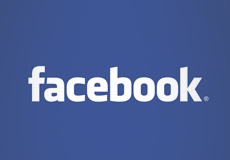Facebook Shares Social User Data with Major TV Networks
October 1, 2013
Facebook will start sharing its wealth of user data with the major TV networks in an effort to compete with Twitter’s move into measuring social TV. Data that the company offers will be limited and stripped of users’ personal identifiers. Facebook hopes to provide data on users’ viewing habits and what they share regarding television shows. The company plans to increase its user base and boost ad revenue, and prove it is a useful service to TV broadcasters.
 “Facebook says it will begin sending weekly reports to America’s four largest television networks, offering a glimpse of how much chatter their shows are generating on the social network,” explains The Wall Street Journal. “The reports will reveal how many ‘actions’ — likes, comments, or shares — a television episode has inspired on Facebook and how many members participated in an action.”
“Facebook says it will begin sending weekly reports to America’s four largest television networks, offering a glimpse of how much chatter their shows are generating on the social network,” explains The Wall Street Journal. “The reports will reveal how many ‘actions’ — likes, comments, or shares — a television episode has inspired on Facebook and how many members participated in an action.”
The company will be sharing its data reports with ABC, NBC, CBS, Fox and a limited number of partners. Facebook will not make the report publicly available.
Twitter and Facebook are competing to be the social media destination for real-time television events that could attract more user activity and more advertising revenue. Twitter, in partnership with Nielsen, is expected to offer “Nielsen Twitter TV Rating” which will measure the number of people tweeting about a particular show, and how many viewed those tweets.
In September, Facebook debuted a program that allows certain media partners access to its public feed and view activity related to specific keywords. The data will include all posts, including those that are private, and Facebook says that the data will be collected anonymously and will only be in summary form.
“In order to calculate chatter, Facebook had to create a library of keywords for each show, such as the names of main characters,” notes WSJ. “The team uses this library to make sure that a comment that seems related to a show like ABC’s ‘Scandal,’ for example, isn’t about a separate topic.”
The company plans to add more data over time, such as how many people viewed activity about a show, notes Facebook. Their approach demonstrates how Facebook is attempting to distinguish itself from its competitors, by emphasizing its large user base built on real identities.
“The conversation is being generated by a group that is much more representative of the general population — that means we should have a better signal as it relates to ratings,” says Daniel Slotwiner, the head of Facebook’s measurement team.
Young women are disproportionately active on Twitter versus the general population, suggests David Poltrack, CBS’s chief research officer. He predicts that Facebook may be more “correlated with actual viewing levels” due to its wide audience.

No Comments Yet
You can be the first to comment!
Leave a comment
You must be logged in to post a comment.